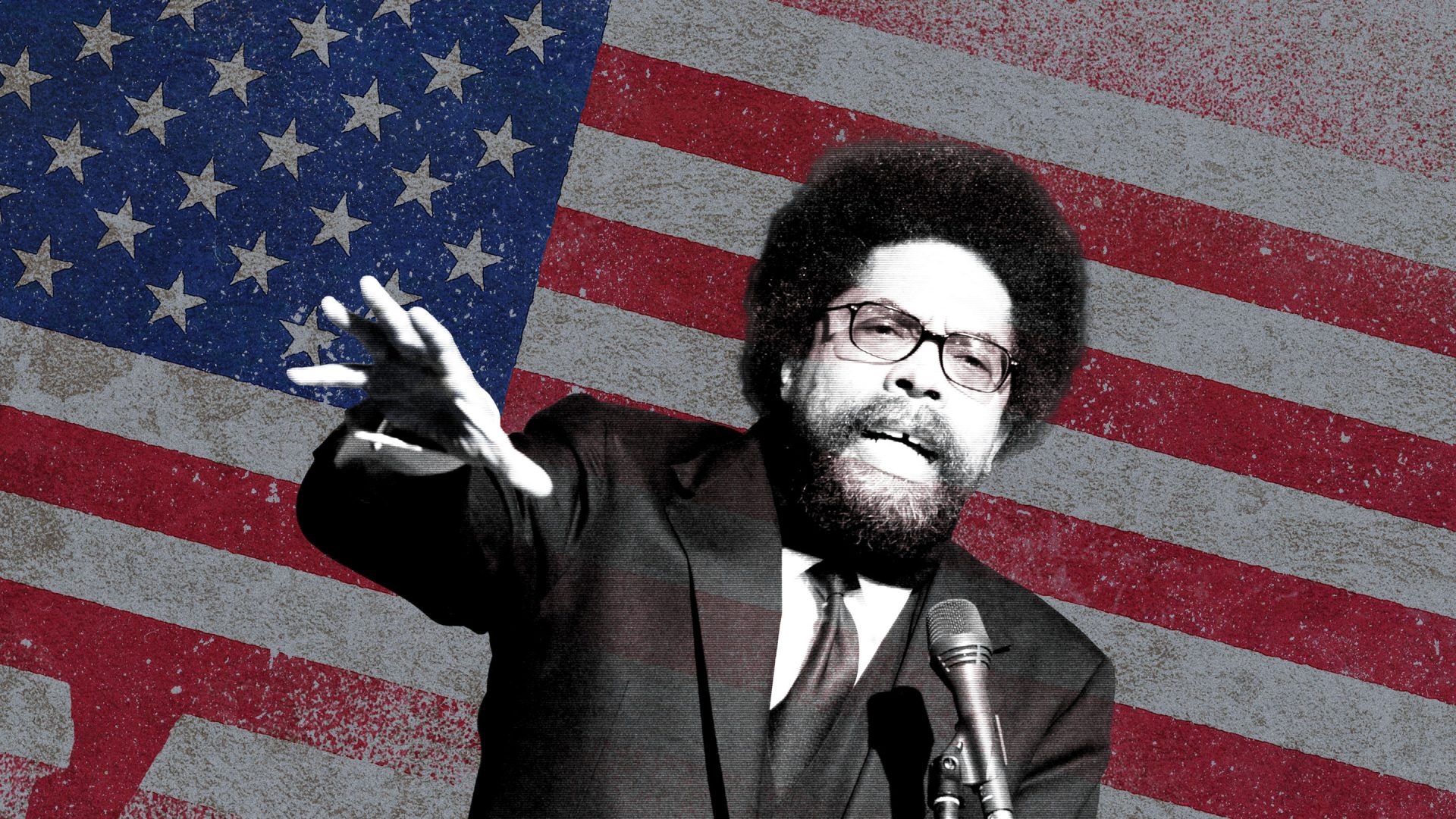There is a wonderful sequence in the 2008 documentary Examined Life with Cornel West, the African-American philosopher, in the back of a car being driven through the streets of New York to Penn Station. He scarcely pauses for breath the whole journey, making the case for philosophy as the courage to think critically, riffing on the idea of riding the dissonance of contemporary life and playing the blue notes. For West, authenticity as a philosopher committed to democracy involves making elites accountable and uncomfortable, and facing up to systems of domination including white supremacy, imperial and state power, and the oppression of the poor both within and beyond the United States.
Last week West declared that he was running for US president. Originally, announced he was standing for the People’s Party, but has now switched his candidacy to the Green Party. Bizarrely, he chose Russell Brand’s podcast as the place to make his first surprise announcement, describing Brand as “a progressive gem”. West knows he isn’t going to win, but talks about going down fighting. “Go down swinging with style and a smile”, as he puts it. He smiles a lot and has real style, real charisma, real strength. Unusually for a philosopher he plays with alliteration, rhythm and rhyme as he speaks. And he thinks at speed, one minute citing Plato, Kierkegaard, Adorno, or Martin Luther King Jr, the next mentioning a Beethoven sonata or Charlie Parker, weaving all this together in a brilliant quick-fire repartee.
West, who has taught at Princeton, Harvard, and Yale, and has written 20 books (mostly about race and democracy), is standing for truth, justice and love.
He is against mass incarceration and militarism, and he wants better healthcare for all. No surprise that he rejects Donald Trump, calling him a neo-fascist gangster and a pied piper; but he’s no fan of Joe Biden either, labelling him a neo-liberal hypocrite and a milquetoast.
West is firmly on the side of the poor and the powerless, and that has been a consistent theme in his life. Not so long ago he was attacking Barack Obama for not being progressive enough, claiming he’d sold out to Wall Street on the advice of his neo-liberal advisers, dubbing him a “brown-faced Clinton” and accusing him of acting like a minstrel.
West is both a radical and a compelling speaker. But given that he is so ready to spit venom at Democrats as well as at Republicans, will his campaign take off? Probably not, even though his goals are noble and his message comes from the heart. There are too many Americans who don’t see capitalism as the root of evil for that, and too many who are suspicious of intellectuals. Philosopher king, President Cornel West, is not a realistic outcome.
Some Democrats are already anticipating that he’s going to draw voters away from Biden, though, effectively smoothing the way for Donald Trump or Ron DeSantis rather than furthering his own radical causes. They want West to step down. He’s inconvenient. Most philosophers are. In a sense that’s our job. But is it sometimes better to be inconvenient from the sidelines than from within the game?
There is a moral dilemma here that West should face up to. Perhaps he really believes that he will win the presidency. In that case, he is misguided. But let’s rule that out. Far more likely is that he realises that he has the slimmest of chances of victory, hence the rhetoric of going down fighting.
But if the best he can achieve is that he gets a bigger audience for his political message, expresses dissent, and is a catalyst for public discussion of radical ideas, important as all those things are, then they should be set against the reality that in a close-fought election he will cost the Democratic candidate votes. That could leave the door open for a Republican demagogue who might well steer the US towards fascism.
It’s good and right to express political dissent in a democracy, but if you do that by standing for president you risk making things worse, not better. The more successful your campaign short of winning, the more damage you cause.
This sort of thing has happened before. In 2000 Ralph Nader stood against Al Gore in Florida in the US presidential election. Gore lost to George W. Bush by 537 votes. Nader received more than 97,000. Many people believe, and with evidence, that Nader’s candidacy was a key factor in Gore losing the state and so missing out on the presidency. Let’s hope the future is not a repeat of the past.



